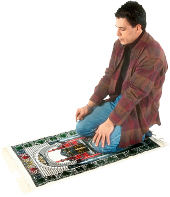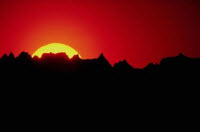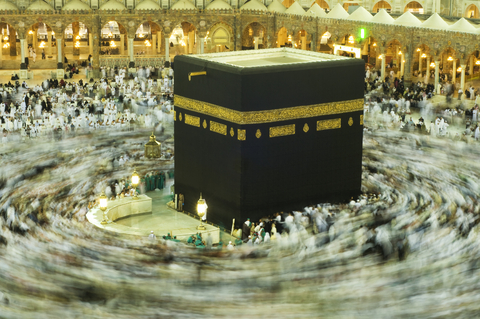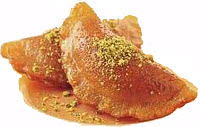Shabebrat Mubbark
2days night our record of deed's would be presented before Allah.
On this night Allah will decide that whether we will be alive this year or not.
it will be decided who wll perform Hajj this year
who will go to hell or heaven
2day night dua Allahtala dua kabul farmate hai.
Pray 2 Allah when our record would be presented before Allah
Doo Tawba
Pray Salatul Tasbeeh
Nd DO DUA
Allah is Rahman and Rahim
All- Knowing
The Forgiver
HE WILL DEFINATELY fORGIVE US.

Muslims fast as an act of faith and worship towards Allah, seeking to suppress their desires and increase their spiritual piety. Fasting together as a worldwide community—Ummah—affirms the brotherhood and equality of man before Allah.
The Islamic calendar is based on the lunar cycle. The month of Ramadan is the ninth month and begins with a combination of the sighting of the new moon and astronomical calculations. The exact time of Ramadan sometimes varies from place to place as some rely heavily on the moon sightings, while others depend on science. An Imam (Muslim holy man) will declare the exact time of Ramadan just prior to its commencement. The fasting period ends upon the sighting of the next new moon, which occurs after 29 or 30 days.
Ramadan brings out a special feeling of emotional excitement and religious zeal among Muslims of all ages. Though fasting is mandatory only for adults, children as young as eight willingly observe fasting with their elders. Children look forward to the excitement of sighting the moon and eating special meals with their families. Adults appreciate the opportunity to double their rewards from God and seek forgiveness for past sins [contrast with Biblical forgiveness of sin]. As Ramadan emphasises Muslim brotherhood and community all feel a particular closeness.
Muslims have to change their whole physical and emotional selves during this 30 long days of fasting. A typical day of fasting begins with getting up early, around 4:30 a.m. and sharing a meal called Sahur together before the fast begins at dawn, about 5:10 a.m. As dawn breaks, the first of five daily prayers, Fajr, is offered.
 As the day proceeds, fasting Muslims are constantly bombarded with messages from their stomachs that it is time for breakfast, snack, lunch, and so on. And each time, Muslims remind themselves that they are fasting for the sole purpose of pleasing Allah and seeking his mercy. They offer the second and third prayers during early and late afternoon, respectively.
As the day proceeds, fasting Muslims are constantly bombarded with messages from their stomachs that it is time for breakfast, snack, lunch, and so on. And each time, Muslims remind themselves that they are fasting for the sole purpose of pleasing Allah and seeking his mercy. They offer the second and third prayers during early and late afternoon, respectively.Fasting helps one to experience how a hungry person feels and what it is like to have an empty stomach. It teaches one to share the sufferings of the less fortunate. Muslims believe that fasting leads one to appreciate the bounties of Allah, which are usually taken for granted—until they are missed!
Throughout the day, Muslims are encouraged to go out of their way to help the needy, both financially and emotionally. Some believe that a reward earned during this month is multiplied 70 times and more. For this reason, Ramadan is also known as the month of charity and generosity.
To a Muslim, fasting not only means abstaining from food, but also refraining from all vice and evils committed consciously or unconsciously. It is believed that if one volunteers to refrain from lawful foods and sex, they will be in a better position to avoid unlawful things and acts during the rest of the year.

Just after breaking the fast, and before dinner, Muslims offer the fourth of the five daily prayers, which is called the Maghrib prayer. After dinner, Muslims go to their houses of worship, called Mosques, to offer the Isha prayer, which is the last of the five daily prayers. The day ends with a special voluntary prayer, the Taraweeh, offered by the congregation reciting the Qur’an, the holy book of Islam.

Many Muslims wish to be in Mecca during Ramadan. Here, a host of believers circle Islam's most sacred monument in prayer, the Kaaba (Ka'aba, Ka'ba, Kabah or Caaba)—a cube-shaped shrine with exterior masonry walls draped in curtains, with an interior of marble and limestone with three central pillars. The structure is located in the center of the Grand Mosque in Mecca (Makkah), Saudi Arabia.
Throughout the world, Muslims turn in its direction when they pray—believing the eastern cornerstone of the building is embedded with black stone (Hajar Aswad, Hajare Aswad, al-Hajaru-l-Aswad) given from heaven by Allah through the angel Gabriel. Traditions say the Black Stone dates to the time of Adam and Eve, was originally white, turned black (dark) due to the sins of mankind, was honored by Abraham and Ishmael (with the rebuilding of the Kaaba—on the foundations of the world's first building, constructed by Adam), and was kissed by the Prophet Muhammed, who set the stone into its current resting place. Through the years, the stone broke into fragments. If possible, believers try to kiss the stone(s) each of the seven times they circle the shrine.
Throughout the world, Muslims turn in its direction when they pray—believing the eastern cornerstone of the building is embedded with black stone (Hajar Aswad, Hajare Aswad, al-Hajaru-l-Aswad) given from heaven by Allah through the angel Gabriel. Traditions say the Black Stone dates to the time of Adam and Eve, was originally white, turned black (dark) due to the sins of mankind, was honored by Abraham and Ishmael (with the rebuilding of the Kaaba—on the foundations of the world's first building, constructed by Adam), and was kissed by the Prophet Muhammed, who set the stone into its current resting place. Through the years, the stone broke into fragments. If possible, believers try to kiss the stone(s) each of the seven times they circle the shrine.

Qatayef, an Arab dessert reserved for the end of Ramadan, a sort of sweet crepe filled with cheese or nuts.
Muslims follow a lunar calendar which is approximately 10 or 11 days earlier each year. Some nations vary on the starting date for Ramadan, as it depends on the sighting of the new moon, which marks the beginning of the new month.
Hazoor(saw) ka irshaad hay kay
Ramzan Mubarak ki her shaab o roz may Allah kay yahan say(jahanoom say) Qaidi chooray jaatay hain
aur her musalmaan kay liay her shaab o roz may aik
dua zaroor kabool hoti hay
Hazoot(saw) ka irshaad hay kay
khood Allah aur uss k farishtay sehri khaanay waloon per
rehmat nazil fermatay hain
Id-ul-Zuha
Also called Bakrid, Id-ul-Zuha, is a festival of great rejoice. Special prayers and exchange of greetings and gifts marked the Id-ul-Zuha (Bakrid), the festival of sacrifice, celebrated with traditional fervour and gaiety in India.
Id-ul-Zuha is a reminder of Prophet Ibrahim's readiness to sacrifice his son for God's sake. It also marks the completion of Haj (pilgrimage to Mecca). On this day, special `Dua' is recited by thousands of Muslims for peace and prosperity.The day also coincides with the day when the holy Quran was declared complete.
The festival of Bakrid is a commemoration of Hazrat Ibrahim's great test of obedience to Allah, who ordered him to sacrifice the person dearest to him.
Ibrahim decided to sacrifice his son Ismail, at Mina, near Mecca. As the great religious leader was on the point of applying the sword to the throat of his dear son, it was revealed to him that the exercise was merely a test of his faith in Allah, and that he could sacrifice a ram instead.
Eid ul Zuha
When is Id-ul-Zuha celebrated?
Id-ul-Zuha is celebrated from the tenth to the twelfth day of Zil hijja. Also, Id-ul-Zuha or
Eid al-Adha annually falls on the 10th da y of the month of Dhul Hijja (?? ?????) of the lunar Islamic calendar. The festivities last for three days or more depending on the country. Eid al-Adha occurs the day after the pilgrims conducting Hajj, the annual pilgrimage to Mecca in Saudi Arabia by Muslims worldwide, descend from Mount Arafat. It happens to be approximately 70 days after the end of the month of Ramadan.
Calendaric dates:
As the date of Id-ul-zuha is calculated according to the Islamic Calendar, or the Lunar calendar, the dates for the upcoming years are based on approximate calculations. Following are the tentative dates for the year 2011 and upcoming years.
1432 (Islamic Calendar): November 6, 2011 (calculated)
1433 (Islamic Calendar): October 26, 2012 (calculated)
1434 (Islamic Calendar): October 15, 2013 (calculated)
1435 (Islamic Calendar): October 4, 2014 (calculated)
Rituals:
The Festival of Id-ul-Zuha or Bakrid is celebrated with great enthusiasm among Muslims all over the world. The day normally starts with men and women dressing in the best outfits and proceeding towards Mosque.
On Id-ul-Zuha, special `Dua` (prayer) is recited by thousands of Muslims for peace andprosperity. The wealthy are expected to sacrifice one animal per family and distribute two-thirds of the meat among poor. Those who cannot afford it, one animal per family can be offered. Very poor, seven or seventy families together offer one animal. A full-grown camel, cow, goat or sheep, free from disease, is considered the best offering. The sacrifice can be offered at any time before the afternoon of the third day. In India, too, goats and sheep are sacrificed all over the country and prayers are offered.
Followed with the food sacrifice and charity to poor Muslims greet each other with “Eid Mubarak” and visit the houses of relatives and friends. Special delicacies are prepared and served among family and friends on the occasion. Gifts are also exchanged on this auspicious day.


